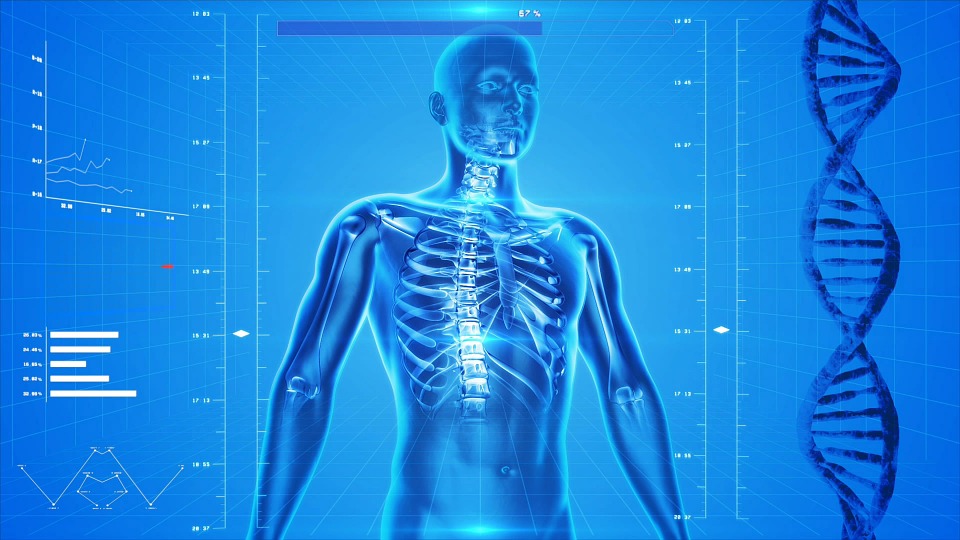Take Control Of Your Bone Health
Our bones perform a wide range of functions and are in constant need of a variety of nutrients, vitamins, and minerals for growth and support
When we think of healthy bones, the first thing that comes to mind is calcium. And while talking about the best diet for strong bones the standard advice would be to drink milk. But while there is no denying that calcium plays a significant role in maintaining strong bones, let us be also clear that bone health isn’t just about milk and calcium.
Our bones perform a wide range of functions and are in constant need of a variety of nutrients, vitamins, and minerals for growth and support. Starting early is the key, as more than 90 per cent of the peak bone mass is achieved before we reach our twenties. Paying attention to our nutritional needs is crucial during childhood and adolescence to lay a strong foundation. However if you are past those years. don’t worry, as it is never too late to take control of your bone health.
The strategy is to increase the consumption of essential bone building nutrients and restrict bone damaging eating habits and lifestyle choices. Add bone benefitting exercises to your regime and you may escape the risk of midlife osteoporosis, crippling fractures, and debilitating bone disorders.
Healthy Bones Diet Essential
Our bones are living tissues comprising proteins like collagen that bring flexibility to the skeletal framework and minerals such as calcium and phosphorus that provide hardness and strength. Listed below are six diet essentials that must be included to ensure better and stronger bones:
Proteins
Adequate intake of lean proteins is important to facilitate building of collagen fibres. Consuming three-four servings of lean protein sources such as fish, legumes, low fat milk and nuts per day have been linked with lower incidence of weakening of bones in middle aged adults.
Calcium
This is the main building block of bone tissues. Calcium also plays a pivotal role in regulating key body processes such as blood clotting, muscle contraction, and proper functioning of the heart and nerves. If there isn’t enough calcium in the diet, the body starts leaching calcium from the bones to perform critical body functions, resulting in a progressively thinning of bones and an increased risk of osteoporosis and bone deformities. The recommended dietary intake of calcium for adults is 1000-1200mg/day. Good sources include milk, curd, cottage cheese, broccoli, mustard greens and soy paneer or tofu.
Vitamin D
Vitamin D is needed for better calcium absorption and the easiest and most effective way to get this vitamin is by soaking up some sunshine. Spending 15-20 minutes in the early morning sunlight helps to stock up the vitamin substantially. Dietary sources include milk, egg yolk, and fatty fish like mackerel, sardines, salmon and certain mushrooms. Vitamin D supplements may also be recommended.
Fruits And Vegetables
Clinical studies have established a strong link between eating a diet rich in fruits and vegetables and improved bone health index. This is attributed greatly to the alkalizing effect of vegetable-rich diets. presence of bone friendly vitamins and minerals and antioxidant polyphenols that provide protection against inflammatory and degenerative bone disorders.
Vitamin K
Vitamin K and D work hand in hand together to enhance bone mineral density, regulate bone growth and metabolism and reduce the incidence of fractures in osteoporotic people.
Zinc And Magnesium
When it comes to bone health, minerals such as magnesium and zinc are as crucial as calcium and vitamin D. Adequate magnesium helps in better absorption of calcium, conversion of vitamin D into its biologically active form (needed for bone formation) and regulating the activity of thyroid (produces a chemical called calcitonin that promotes bone building) and parathyroid hormones (responsible for bone breakdown process). These minerals are found in nuts, dried fruits, banana, berries, whole grains, yogurt, and flaxseeds.
Non-Dairy Foods For Stronger Bones
For those who are lactose intolerant or dislike dairy, presented here are top five non-dairy bone healthy foods.
Sesame Seeds – These tiny seeds are rich in calcium and also in iron, magnesium, copper, and zinc; perfect to step up your bone mineral density.
Kidney Beans – loo grams of kidney beans or rajmah provide approximately .150 grams of calcium; similar to the amount of calcium in a glass of milk. • Almonds – Dense in proteins, dietary fibre, calcium and phosphorus, almonds are very good for the bones.
Green Tea – Avoid excess salt, soda, and caffeine. Switch to green tea to prevent weakening of bones.
Fortified Breakfast Cereals and Fruit Juices – Bolster your bones by adding calcium fortified foods and supplements.
Read More:
